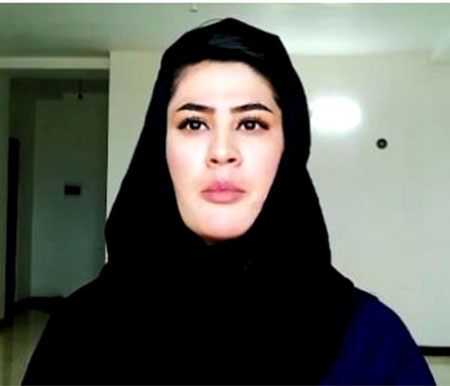Some Afghan women complained about what they called the “sidelining of women” by the current Afghan government, saying their loss of work is a serious economic challenge.
This comes as the Afghan educational authority said that they are considering 275 posts for female teachers in the capital city of Kabul. After the fall of the former government, many women working in the government departments became jobless.
The women said that lack of jobs has driven them into a challenging situation. The women said that they are taking care of their families, for which they need jobs.
“The women who are currently at home are struggling with mental health problems as well as economic challenges. The Islamic Emirate must consider their problems,” said Nazdana, a resident of Kabul.
Women’s rights activists said the government is responsible for providing work and educational opportunities for women.
“Afghan women want meaningful inclusion in the Afghan society and will continue to fight in this regard,” said Mariam Maroof, a women’s rights activist.
Meanwhile, the Ministry of Higher Education announced 275 posts for female teachers in the capital city of Kabul.
“The total number of posts is 890. At least 275 of them are for women. The Islamic Emirate is attempting to hold the examination through a transparent process,” said Aziz Ahmad Riyan, MoHF’s press director.
Earlier, the International Labor Organization said that nearly half a million Afghans lost their jobs after the Islamic Emirate’s takeover of Afghanistan.
The organization anticipated that the women’s participation at work would drop by 28 percent in mid-2022.
Meanwhile, on the occasion of International Women’s Day, several international organizations and diplomatic missions have said they are concerned about the situation of women and girls in Afghanistan and are committed to stand by their side.
The UN Assistance Mission in Afghanistan in a statement said it stands by Afghan women and girls as they face the consequences of multiple crises combined with gender inequality and discrimination. “What we are witnessing today in Afghanistan is a crisis of catastrophic proportions. Everyone in the country is affected by the current crises, but the situation for women and girls is particularly concerning as their rights and access to opportunities have become increasingly challenged,” said Deborah Lyons, the UN Secretary-General’s Special Representative for Afghanistan.
UNAMA said women and girls’ full and equal participation in all areas of public life is critical to the future of Afghanistan, while denying them their rights to freedom of movement, work and education means limiting greater economic development of Afghanistan. “We remain firm in our belief that no durable peace, recovery, or stability is possible without women’s active engagement and participation in the social, economic, and political life of their country,” reads UNAMA’s press release.
Amnesty International said on the occasion that women in Afghanistan are being denied their fundamental rights and urged that they should be supported in their fight for their rights.
“Governments around the world must put the rights of women and girls at the very center of their foreign policy for Afghanistan. They must take their lead from Afghan women’s rights defenders, and insist, for example, on women’s and girls’ equal access to education, to employment and to essential services, without discrimination,” Amnesty’s Secretary General, Agnès Callamard said.
Human Rights Watch also said the Afghan women and girls’ have faced severe challenges in the past seven months and their rights have been rolled back, while the international community’s response has been minimal.
“The world’s response has been muted. Several countries proudly claim a ‘feminist foreign policy.’ But the international response to these developments has lacked urgency, and there is little sign of an effective coordinated plan to protect the rights of Afghan women and girls,” it said.
The US embassy in Kabul (which operates from Doha), the EU Delegation in Afghanistan and several other diplomatic missions have also called for the preservation of Afghan women and girls’ rights and their inclusion in social and political life.
The Islamic Emirate, meanwhile, said it is committed in supporting women and girls. In a message on the occasion of Women’s Day, the Ministry of Foreign Affairs said on Twitter: “Protracted wars in Afghanistan have been immensely detrimental for women. IEA is committed to addressing the plight of Afghan women, and providing facilities for an honorable and beneficial life in light of the noble religion of Islam and our accepted traditions.”
The Islamic Emirate’s spokesman Zabihullah Mujahid also said on Twitter: “The Islamic Emirate is committed to upholding the Sharia rights of all Afghan women. International Women’s Day is a great opportunity for our Afghan women to demand their legitimate rights. We protect and defend the rights of our Afghan women, God willing.”










